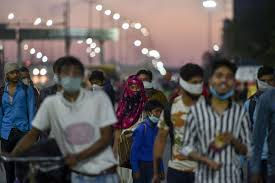TIME TO SWITCH : Menstrual hygiene and sustainability.
- Anushka Sharma

- Jul 1, 2020
- 3 min read

Plastic is indeed very convenient and has very easily invaded our lives , we use plastic in a way that seems irreversible and the hazardous non-biodegradable nature of the same makes it even harder to escape the environmental problems caused.
Talking about the hazards , plastic is not only affecting humans , it causes much more damage than it seem to cause. Toxic gases released upon burning, animals die if not disposed properly , recharging of ground water aquifers hampered if disposed in soil and let's resist talking about the marine life.
Plastic is used in many of our personal hygiene products , the most basic example of which is sanitary pads and tampons with plastic applicators. Of course there are bio-degradable alternatives , but the problem only starts with the word "alternatives" , why do we have to use the word alternative in something that is a necessity for humans as well as for the environment , another problem arises with bio-degradable pads and tampons is that, they are not cost effective , the prices are almost double the cost of the mainstream brands which manufacture non-biodegradable products.
while there is no official data , several reports show that there is almost an average of 9000 tonnes of menstrual waste generated every month in India (mostly in the form of sanitary pads) . A large number of women in India use sanitary pads . A majority of sanitary pads are plastic based . According to Menstrual Health Alliance India , of total sanitary waste 45% is due to menstrual products , largely sanitary napkins. Also , there is no proper disposal system for menstrual waste yet , not only in India but in most of the developing countries.
HEALTH HAZARDS
The plastic based sanitary napkins are designed in a way to trap the moisture , bodily fluids and blood effectively , which provides a breeding ground for bacteria and various types of infections . Many of us have grown up using the generic plastic-based sanitary pads , mostly unaware of the health issues caused in a long run. In some cases it can lead to compromising the reproductive health of an individual , affecting their fertility . The situation can even get worse leading to cervical cancer .

ENVIRONMENTAL HAZARDS
The waste is usually not treated and dumped in ponds , rivers and other water bodies contaminating them and harming the marine life . Apart from that they are mostly thrown in open, polluting the soil and choking the drains.
Menstrual waste itself contains bodily fluids and blood carrying pathogens, these are usually dealt by rag pickers with their bare hands and can easily infect them , on the other hand they can contaminate soil , water supplies and pipes leading to cities and villages.
Segregation of menstrual waste is important , where it is important to dispose off the plastic in a safe way and the other waste should be treated as biomedical waste.

THE SOLUTION
The old methods rural women use of re-using cloth as sanitary pads is surely Eco-friendly but not hygienic.
Rural women are now making disposable pads out of banana tree fiber, which decompose in less than a year. A number of entrepreneurs have now taken it upon themselves to venture into this area of making environment-friendly sanitary pads.
However , these options are not so cost effective , there are other alternatives of sanitary pads. These consist of menstrual cups , biodegradable tampons etc. the products consist of little to no plastic and are easily degradable in the environment.
Another important aspect of this concept is to spread awareness about the use of these products by simply coming forward and talking about the topic , by advertising more about these products or by generating guidelines to restrict the produce and use of plastic-based products.
Environmental health is as important as personal health and it's both safe and healthy to use products that affects none.



Comments